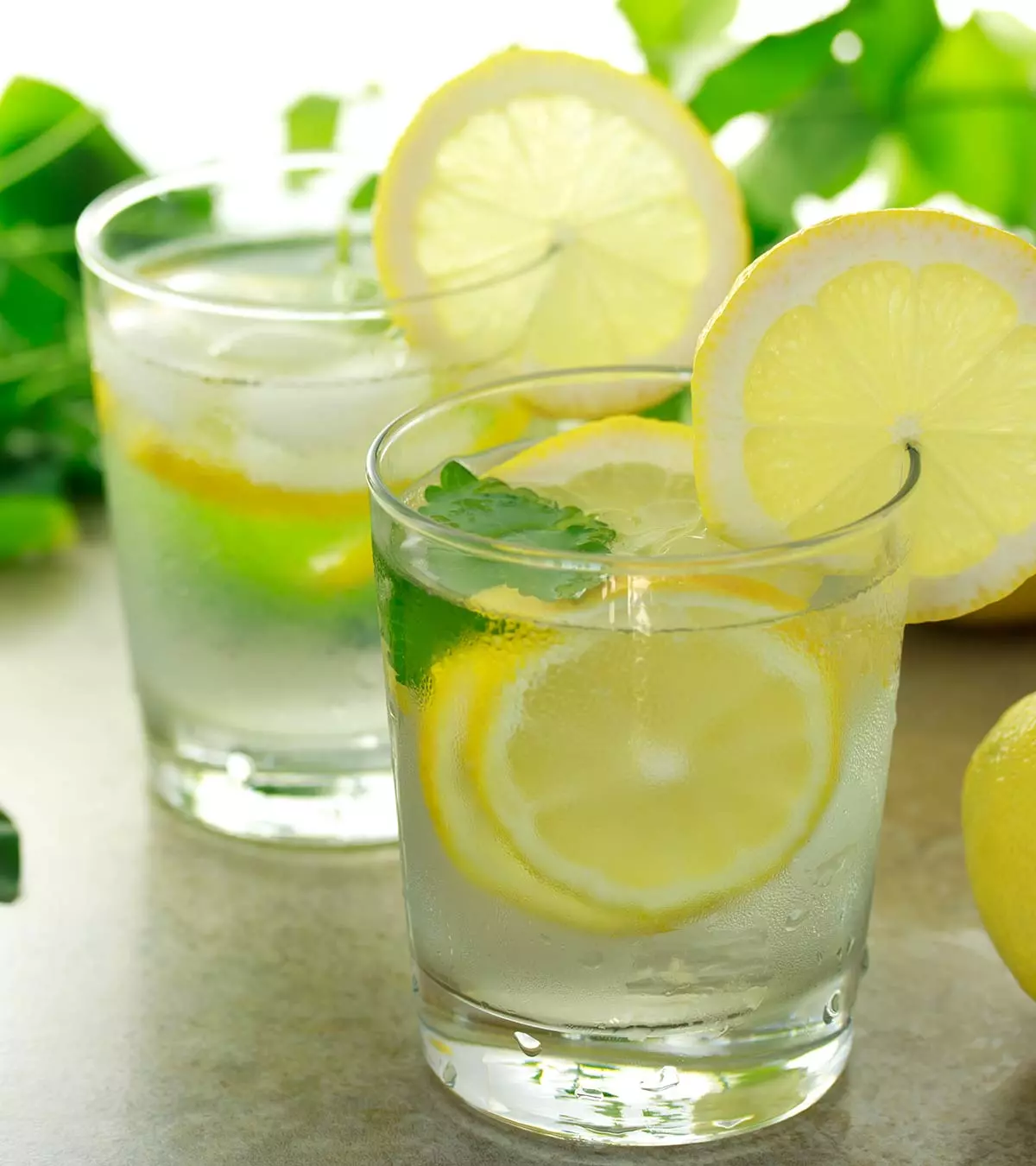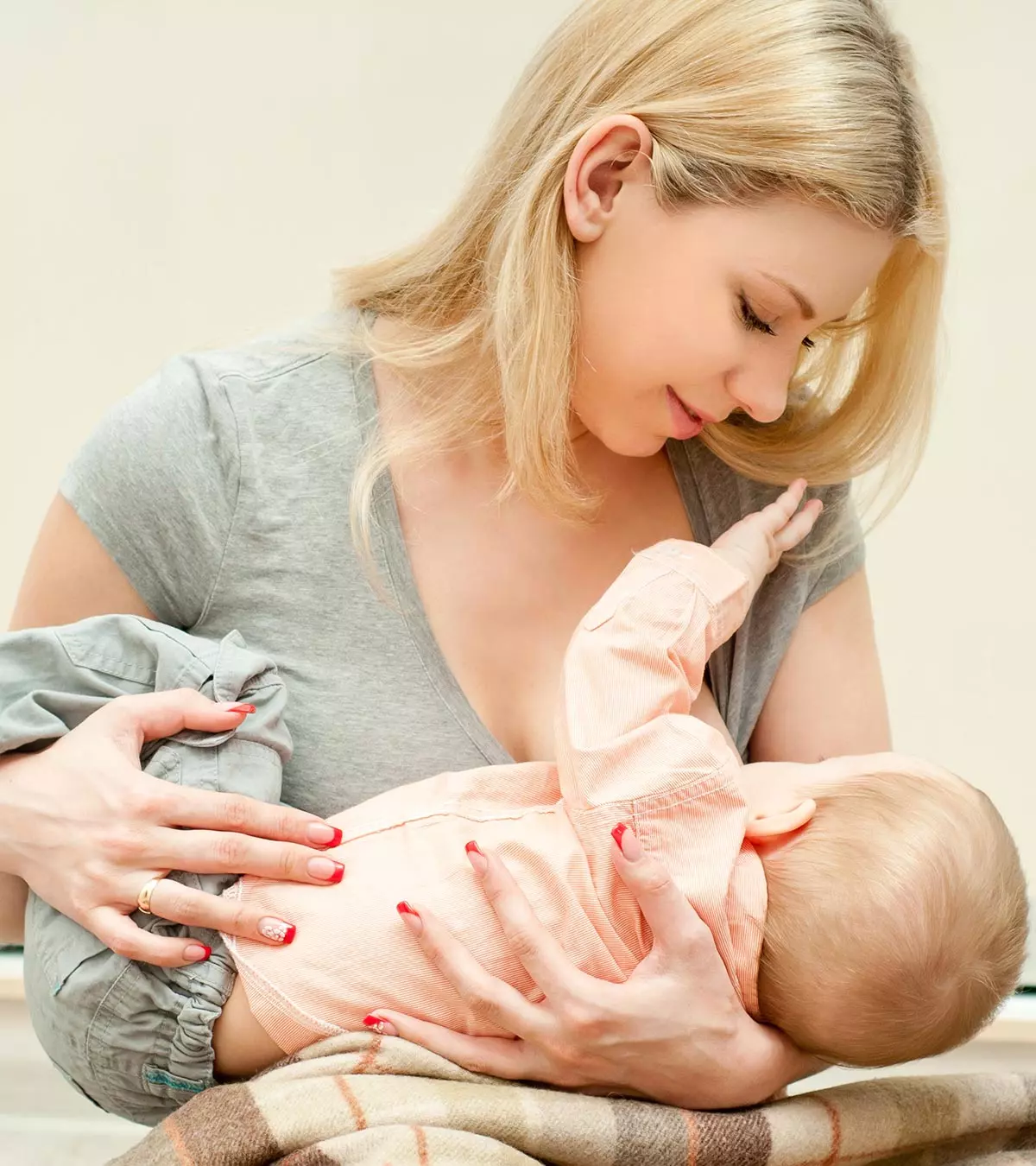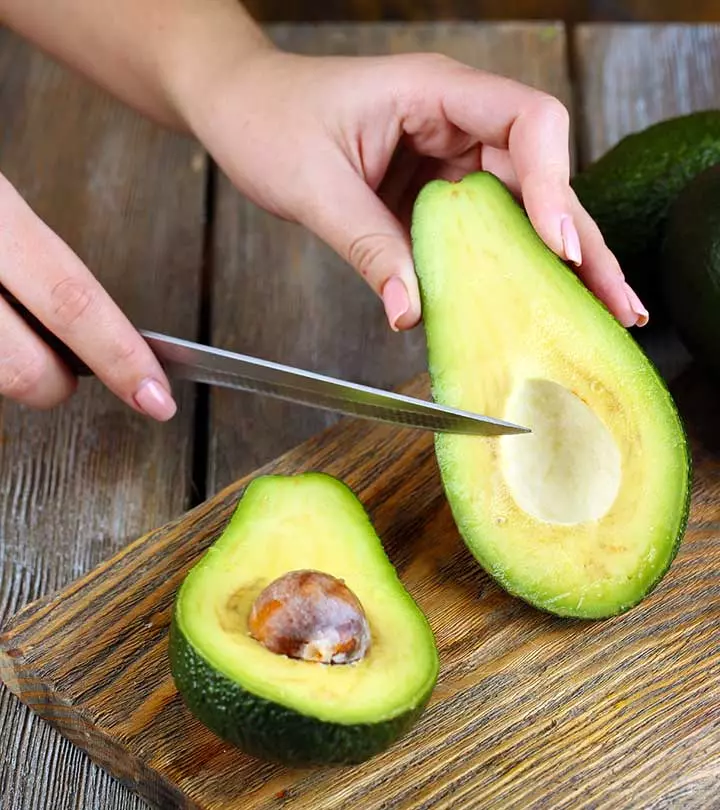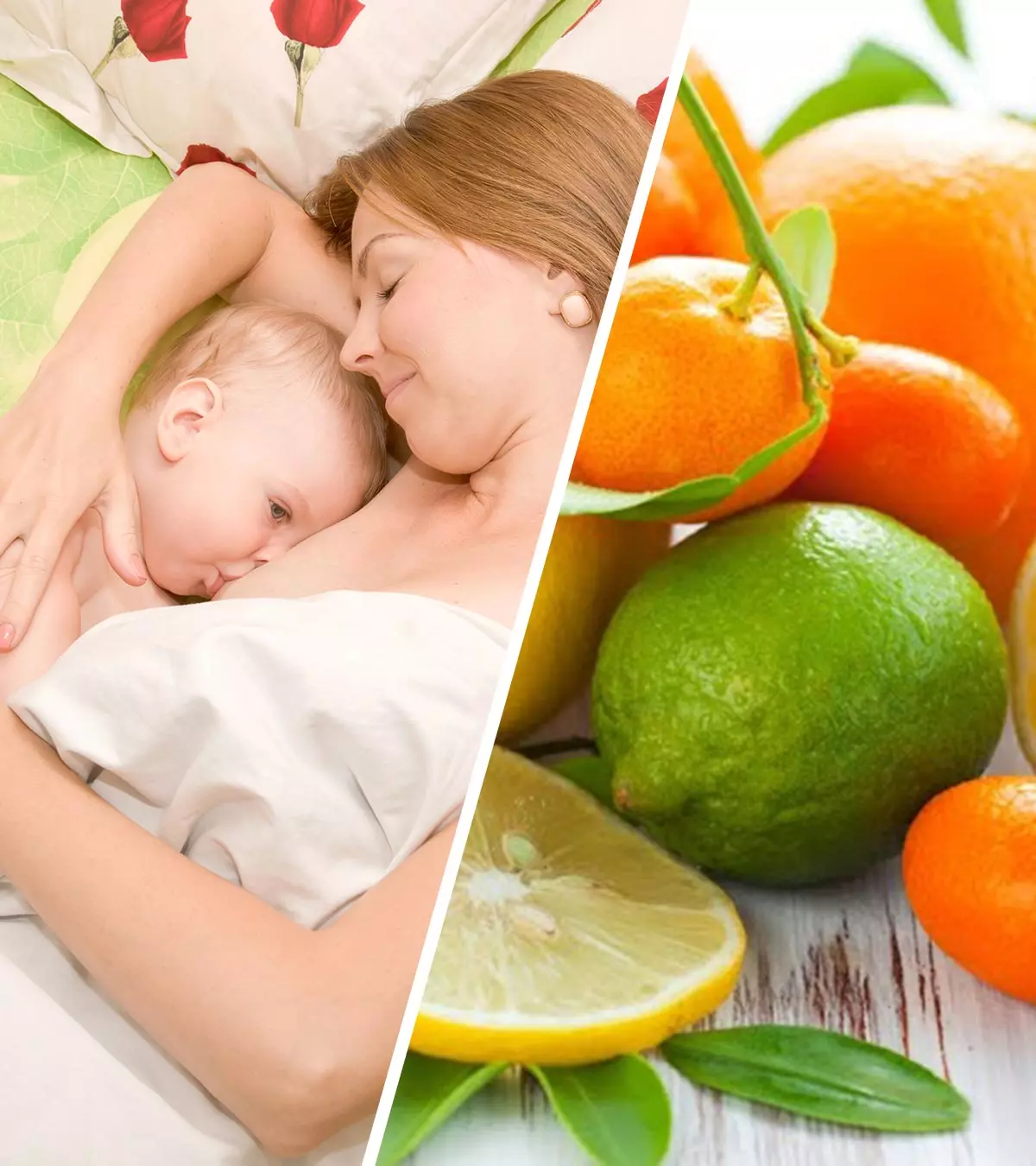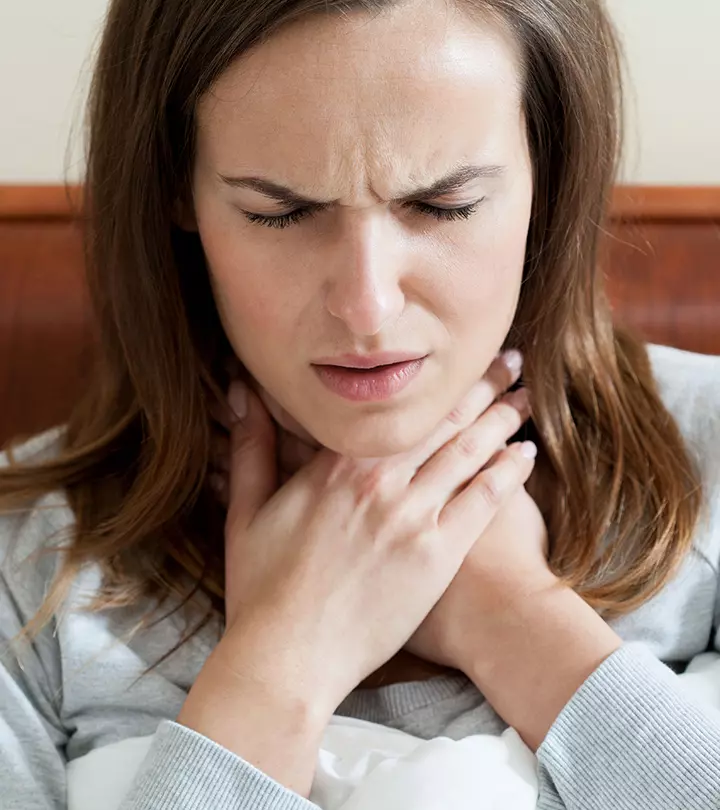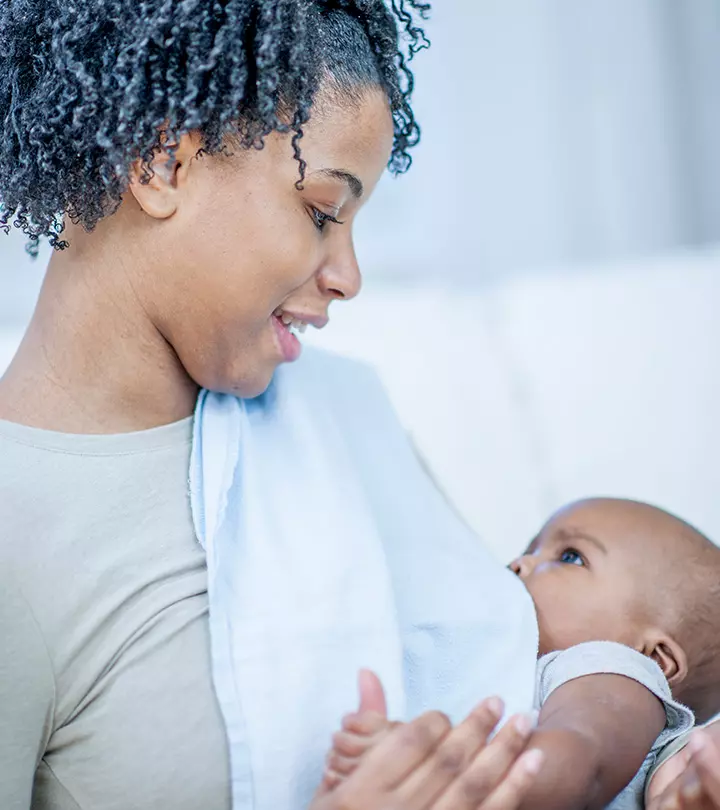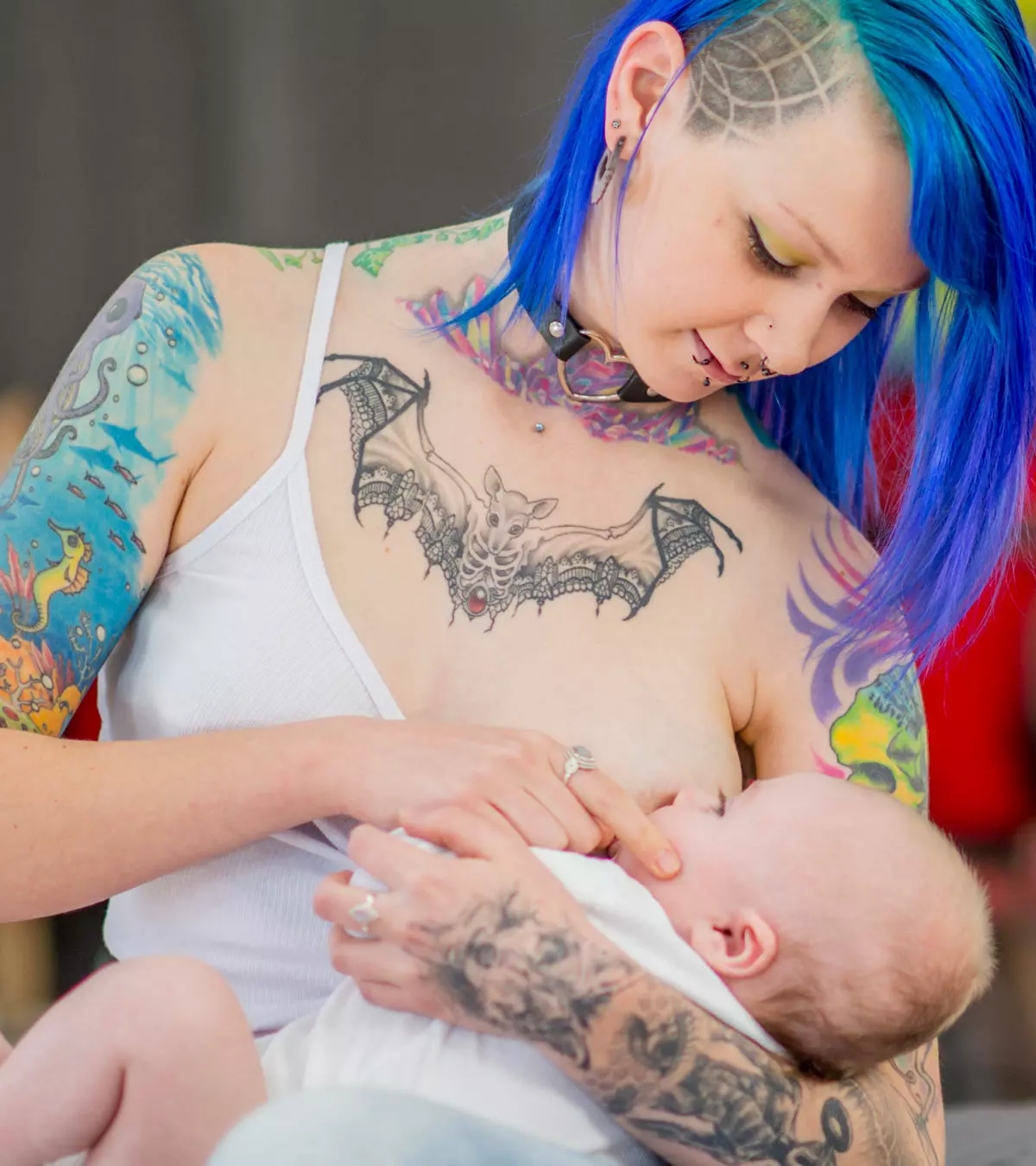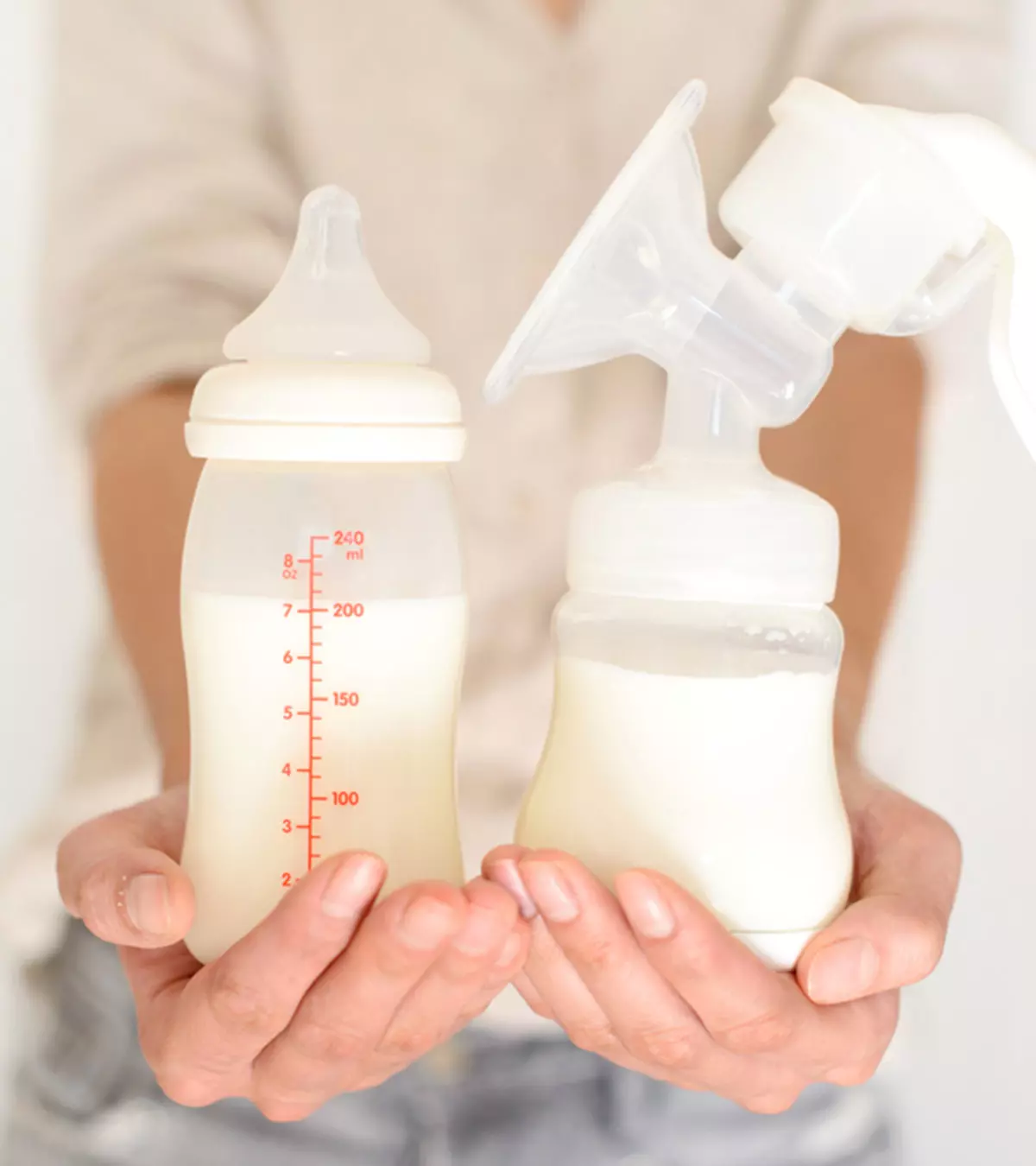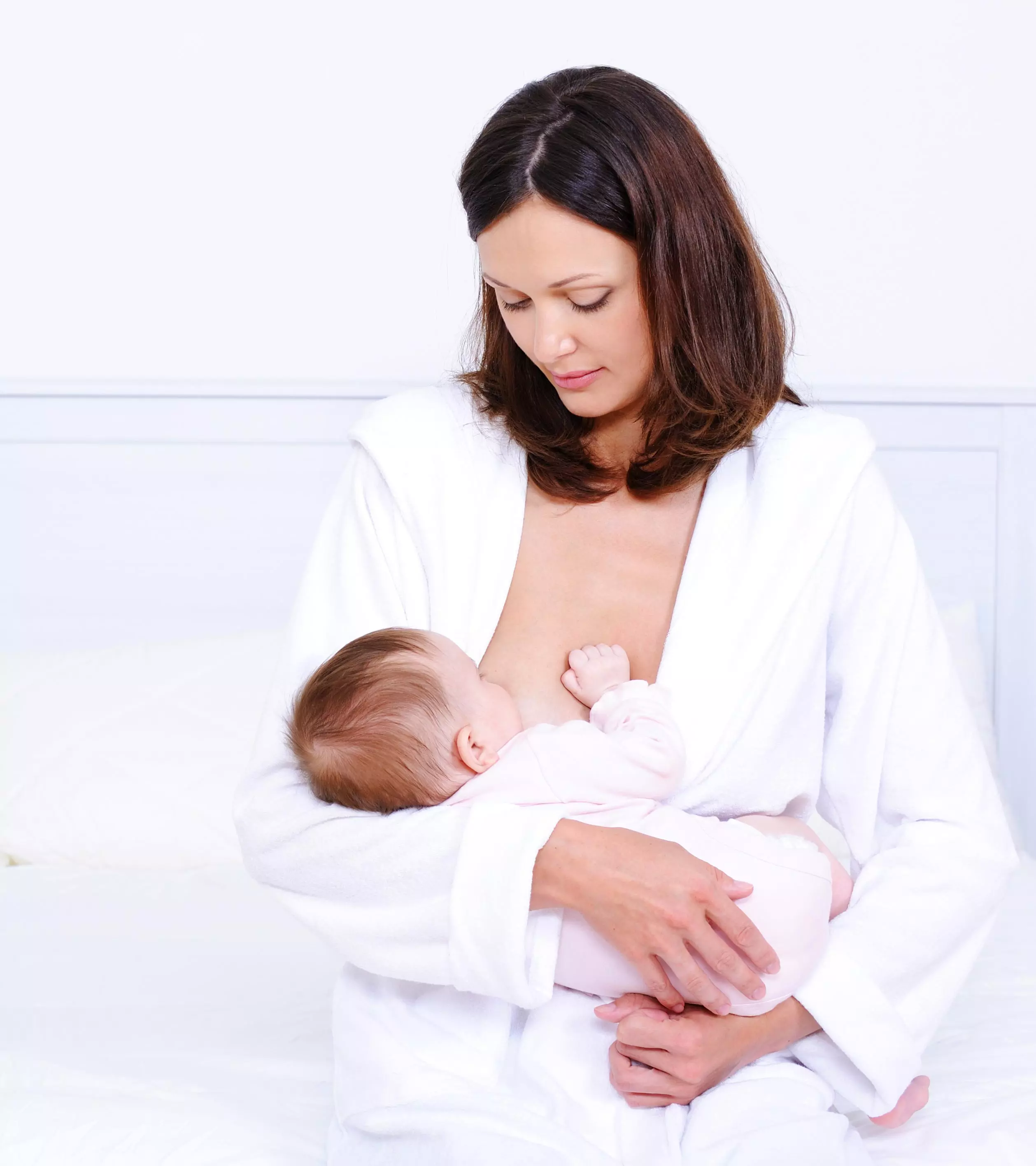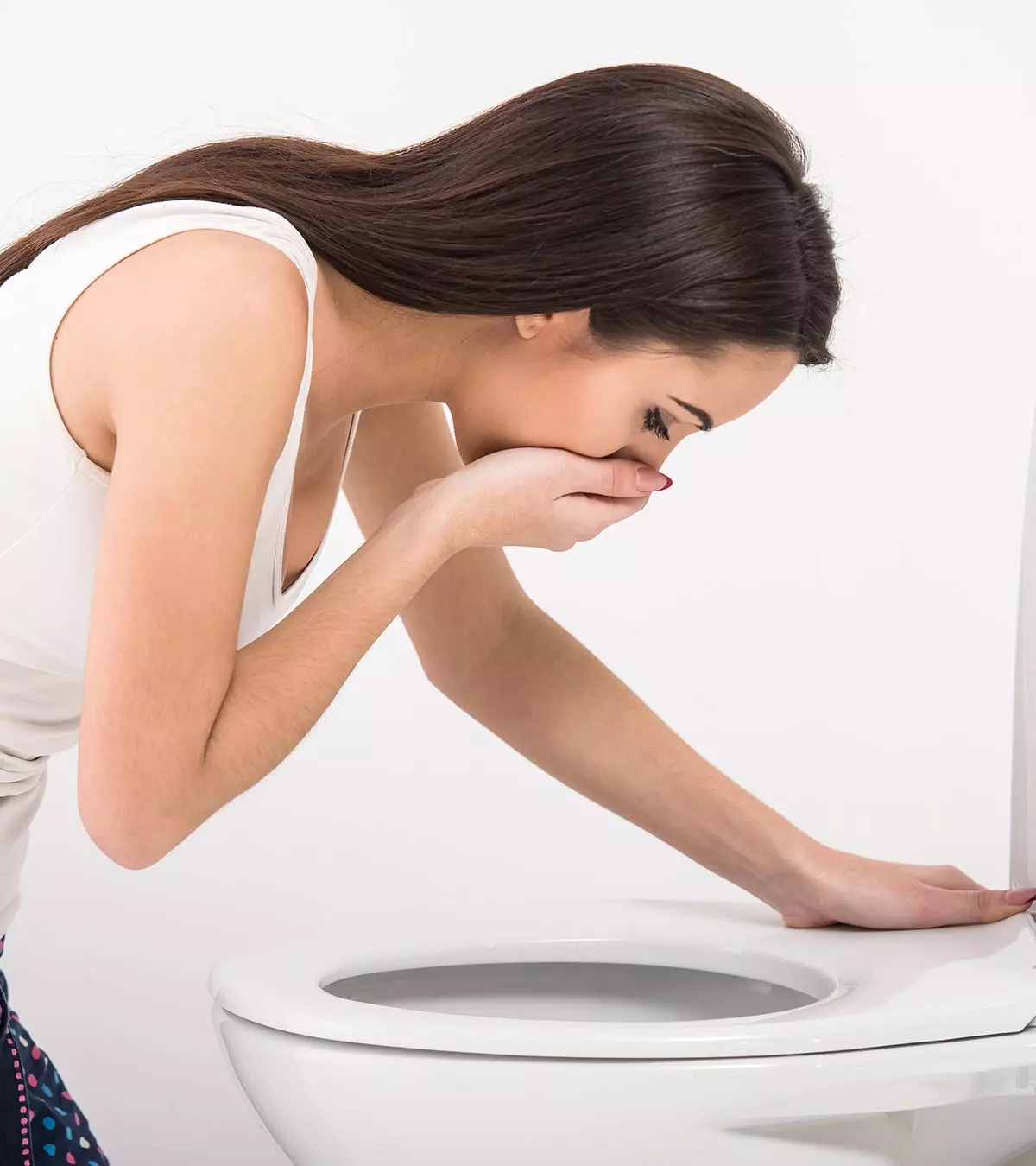
Image: Shutterstock
Food poisoning can happen to anyone who has consumed stale or toxic food. But it can raise some concerns if women experience food poisoning while breastfeeding.
Mostly resulting from consuming contaminated food, it can cause illnesses like vomiting out of nausea and lead to dehydration, besides other common symptoms. Although the stomach infection is not known to cause any harm to the baby, you may need to consult your healthcare provider under certain circumstances. It can be cured with simple home remedies and medical treatments.
Read on to know more about food poisoning in lactating women, including its causes, symptoms, and treatments.
Key Pointers
- Consuming contaminated or raw seafood, meat, or dairy products can lead to food poisoning while breastfeeding, which can be harmful for both the mother and baby.
- Nursing mothers may experience symptoms such as nausea, diarrhea, blood in the feces, dehydration, and fever if they have food poisoning.
- Despite having food poisoning, it is safe to breastfeed the baby as bacteria do not get transferred through breast milk.
- Treating food poisoning in nursing mothers involves increasing fluid intake, taking antibiotics prescribed by a doctor, or hospitalization if necessary.
- To minimize the risk of infection, always wash your hands before cooking or eating, and consume properly cooked food.
What Is Food Poisoning?
Food poisoning refers to stomach upset and fatigue from consuming contaminated food containing toxins and harmful microbes. The US Centers for Disease Control and Prevention (CDC) estimates that almost 48 million people are affected by some kind of food-borne illness annually, and about 128,000 are hospitalized.
Causes Of Food Poisoning While Breastfeeding

Image: IStock
Food poisoning in breastfeeding mothers can occur due to the consumption of contaminated food that contains toxins and harmful viruses and bacteria. Bacteria, such as E ColiiGut microbiome that is usually harmless but can contaminate food and water to cause diarrhea and fever. , salmonellaiA bacteria causing a diarrheal infection called salmonella via contaminated foods. , and listeriaiA bacterium that grows in raw or unpasteurized foods and can cause a pregnancy complication called listeriosis. , can lead to the symptoms of food poisoning. Viruses such as rotavirus can cause food poisoning. Parasites such as Giardia can also cause stomach upsets. Breastfeeding mothers can also suffer from food poisoning due to the consumption of undercooked or raw food. So you need to be careful while consuming seafood, meat, and dairy products during lactation (1).
 Be watchful
Be watchfulSymptoms Of Food Poisoning While Breastfeeding
What symptoms of food poisoning do nursing mothers experience? Here is a list of prominent symptoms of food poisoning in lactating mothers.
- Nausea
- Vomiting
- Diarrhea
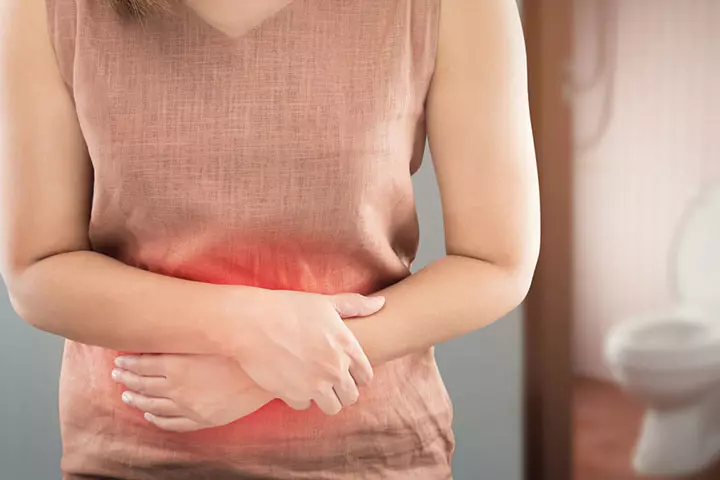
Image: IStock
- Abdominal pain or cramps
- Fever
- Blood in stools
- Dehydration
- Dry mouth
- Fatigue, lightheadedness
- Blurry vision
- General muscular weakness and tingling in arms (1)
Treating Food Poisoning While Breastfeeding
Treatment for food poisoning in nursing mothers primarily involves curing dehydration and helping them feel better
. Here, we list some effective treatments for food poisoning in nursing mothers.
1. Increase Your Fluid Intake:
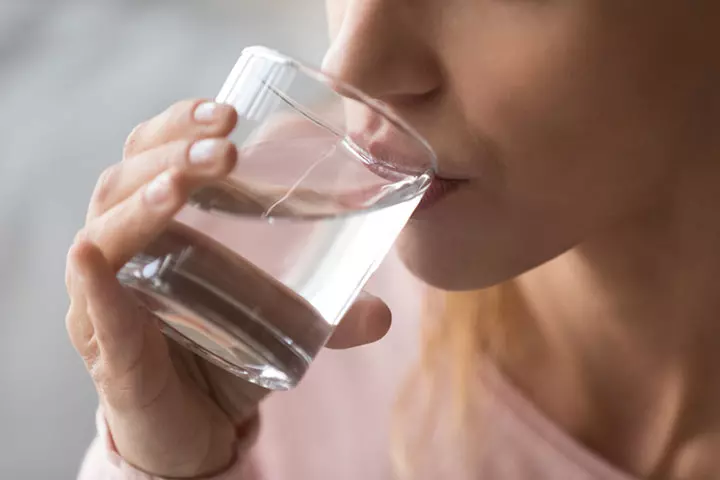
Image: Shutterstock
Increasing your fluid intake will help treat dehydration to a great extent. Fluids hydrate your body as well as help increase the milk production in nursing mothers. You feel physically comfortable to continue nursing your dear little one. Make sure you drink non-caffeinated beverages to treat diarrhea and dehydration. Oral rehydration solution (ORS) can help balance the salt, water, and sugar levels in your body and replace the lost fluids during diarrhea. If you suffer from diarrhea for more than three days, avoid having solid foods and dairy products.
 Quick tip
Quick tip2. Antibiotics:
Consult a licensed doctor for appropriate antibiotics to curtail the symptoms and effects of food poisoning while breastfeeding. The doctor may prescribe antibiotics to kill harmful bacteria and other microbes in your stomach and speed up your recovery. In some cases, doctors may suggest the use of probiotics to help reduce diarrhea.
3. Hospitalization And Intravenous Medications:
If you suffer from chronic food poisoning, a visit to the hospital may be the only plausible option. Intravenous fluids and medicines can help you recover quickly. Prompt treatment can also help you keep your baby safe from any infection (2).
Is It Safe To Breastfeed While Suffering From Food Poisoning?

Image: Shutterstock
Yes, you can continue to breastfeed your dear little one even if you suffer from vomiting, diarrhea, and abdominal cramps. Since the bacteria and microbes are present only in your stomach and not in the breast milk, it is safe to breastfeed your baby. If the toxins pass into your bloodstream, you need to stop breastfeeding and seek immediate medical attention (3).
Preventing Food Poisoning While Breastfeeding

Image: Shutterstock
Here are some ways to prevent breastfeeding food poisoning.
- Follow the necessary hygiene protocols and ensure you wash your hands before you eat to avoid food poisoning.
- Ensure you eat well-cooked and safely packaged foods to avoid contamination and botulism.
- Maintain a clean home and surroundings to avoid the growth of bacteria in the kitchen (4).
 Be watchful
Be watchfulFrequently Asked Questions
1. How long does food poisoning last when breastfeeding?
In most cases, food poisoning symptoms, such as vomiting and diarrhea while breastfeeding, resolve within one or two days without medical attention.
2. What are the four types of food poisoning in breastfeeding women?
The four most common types of food poisoning in individuals, including breastfeeding mothers, are those caused by norovirus, salmonella, clostridium perfringens, and campylobacter (5).
3. How do I know if I have food poisoning or a stomach virus when breastfeeding?
Anyone can suffer from food poisoning, even breastfeeding women, who consume undercooked, uncooked, or contaminated food. Though food poisoning while breastfeeding will not harm your baby, it might cause nausea, vomiting, diarrhea, dehydration, and other symptoms in the mother. Treatment consists mostly of taking suitable antibiotics and plenty of fluid intakes. However, if your symptoms are severe, you may need to be hospitalized for further treatment. Hence, it is always better to take precautions while eating, especially when breastfeeding.
Infographic: Tips On Preventing Food Poisoning When Breastfeeding
Food poisoning may not be a cause of concern for breastfeeding babies, but it can cause substantial discomfort to nursing mothers. It may be prevented by identifying the sources of infection. The infographic highlights ways to avoid contact with microbes that may cause food poisoning.

Illustration: Momjunction Design Team
Illustration: Food Poisoning While Breastfeeding – Causes Symptoms & Treatments

Image: Dalle E/MomJunction Design Team
Did you know that breastfeeding safeguards your baby from food poisoning? Learn more from this informative video to gain valuable insights on this topic.
References
- Food Poisoning.
https://www.foodsafety.gov/food-poisoning - Food poisoning.
https://medlineplus.gov/ency/article/001652.htm - Environmental and Chemical Exposures.
https://www.cdc.gov/breastfeeding-special-circumstances/hcp/exposures/index.html - Preventing food poisoning.
https://medlineplus.gov/ency/article/007441.htm - Food Poisoning.
https://www.poison.org/articles/food-poisoning - Understanding Viral Gastroenteritis.
https://www.hopkinsmedicine.org/health/conditions-and-diseases/understanding-viral-gastroenteritis
Community Experiences
Join the conversation and become a part of our nurturing community! Share your stories, experiences, and insights to connect with fellow parents.
Read full bio of Mindy Cockeram
Read full bio of Jessica Albert
Read full bio of Swati Patwal
Read full bio of Shinta Liz Sunny







